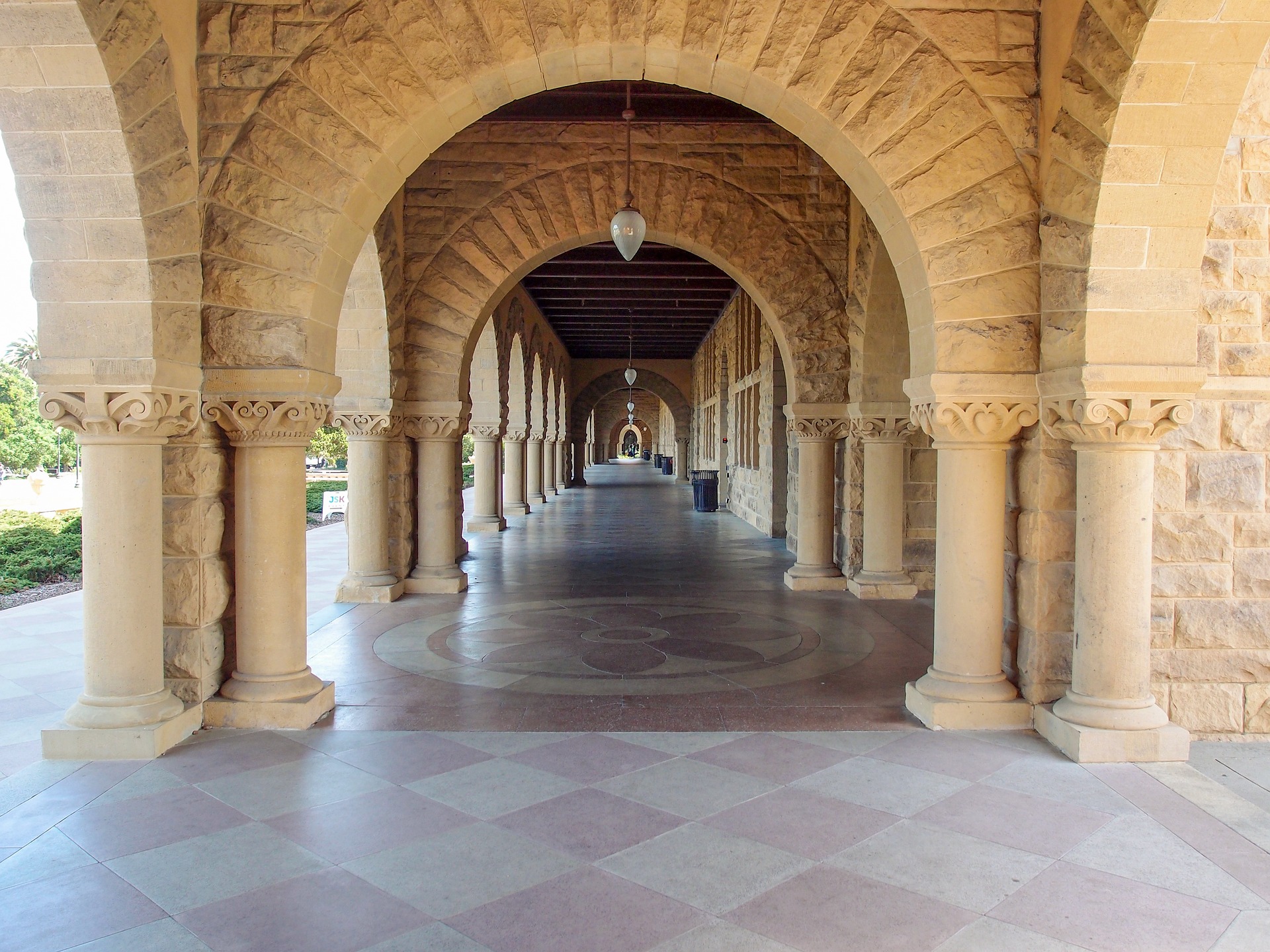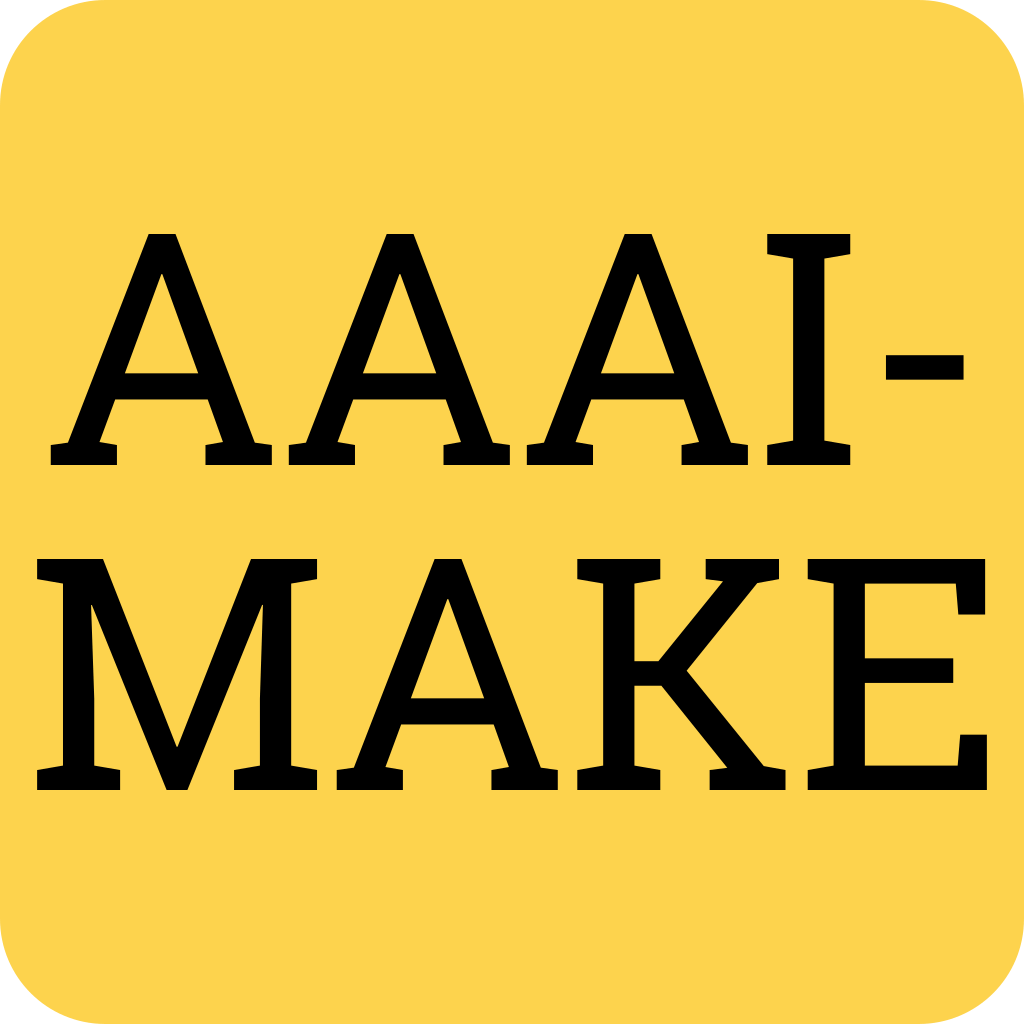AAAI-MAKE 2024 brings together a diverse community of researchers, practitioners, and industry professionals from the fields of machine learning, knowledge engineering, and large language models (LLMs) to explore the synergy between these domains. The symposium aims to address the critical challenges of trustworthiness, interpretability, and the integration of commonsense reasoning in AI systems. Through a series of keynotes, paper presentations and discussions of the 2.5-day symposium, participants will delve into novel solutions empowering machine learning and large language models with domain and commonsense knowledge.

AAAI-MAKE 2024 • AAAI Spring Symposium Series
March 25-27, 2024 @ Stanford University, California, USA
Topics and Format
Key topics of discussion will include, but are not limited to:
- Trustworthy and knowledge-based explainable AI
- Evaluation of Commonsense Knowledge and Reasoning in Large Language Models
- Commonsense Knowledge in Foundation and Large Language Models
- Interpretability and Safety of Large Language Models with Commonsense Knowledge
- Human-Centered AI, Dialogue Systems, and Conversational AI
- Hybrid and Neurosymbolic AI
- Combination of Knowledge Engineering and Machine Learning
- Integration of Commonsense Knowledge Sources with LLMs and Downstream Tasks
Since AAAI-MAKE 2024 is a dedicated symposium on empowering ML/LLMs with domain/commonsense knowledge, the contributions should address hybrid approaches. The symposium involves presentations of accepted papers, keynotes, (panel) discussions, and plenary sessions.
Keynotes
We are pleased to announce the following keynote speakers and invited talks:
- Ron Brachman is the former director of the Jacobs Technion-Cornell Institute and professor of computer science at Cornell University. He previously served as Director of DARPA’s IPTO (among other things, creating the program that led to Siri) and has been President of AAAI. His recent research focuses on how AI systems can demonstrate common sense in a human-like way. He has been advocating for examining common sense from a broader perspective, considering it in the context of a full cognitive system. He is the co-author of an important textbook on knowledge representation and reasoning and of a 2023 book about AI and common sense.
- Edward A. Feigenbaum, Professor Emeritus of Computer Science at Stanford University, is renowned as the “father of expert systems”. His pioneering contributions have been recognized with the prestigious ACM Turing Award in 1994, for his work in the design and construction of large-scale artificial intelligence systems. Feigenbaum’s career is distinguished by numerous honors, including being elected Fellow of the AAAI and ACM, reflecting his significant impact on AI technology and its commercial applications.
- Noah Goodman is professor of Psychology and Computer Science at Stanford University, and research scientist at Google DeepMind. He studies intelligence in humans and machines, merging behavioral experiments with formal methods from deep learning, statistics, and logic.
- Alison Gopnik is a professor of the Graduate School in the Department of Psychology at the University of California, Berkeley, affiliate professor of philosophy and member of the Berkeley AI Research group. Her research focuses on how children make sense of the world around them, given limited evidence. She was one of the first cognitive scientists to study “theory of mind” and winner of the 2024 David Rumelhart Prize in Cognitive Science.
- Henry Lieberman is a research scientist at the Computer Science and Artificial Intelligence Laboratory (CSAIL) at the Massachusetts Institute of Technology. His research focuses on story understanding, generation, and using commonsense knowledge and analogical reasoning in cognitive systems.
- James McClelland is the Lucie Stern professor in the Social Sciences at Stanford University and director of the Stanford Center for Mind, Brain, Computation, and Technology. He is renowned for his work on mathematical cognition and Parallel Distributed Processing, applying connectionist models (or neural networks) to explain cognitive phenomena.
Submission
We solicit full papers and position/poster/short papers that can include recent or ongoing research, challenges with datasets, and surveys.
All submissions must reflect the formatting instructions of the AAAI author kit and be submitted through EasyChair.
- Full papers (6 to 8 pages plus 1 to 2 “references” pages) and position/short/poster papers (2 to 4 pages plus 1 “references” page) can include recent or ongoing research, challenges with datasets, and surveys.
- Industrial side-tutorial event or demonstration proposals (1 to 2 pages) should have a focus on business or research related to the symposium topics, excluding product advertising.
- Discussion proposals (1 page) should contain a description of the specific topic with a list of questions and a discussion moderator.
The invitation of contributors and presenters will be based on a rigorous single-blinded review of papers by the program committee. Accepted papers shall be published as part of the “Proceedings of the AAAI Symposium Series” by the AAAI Library.
Important Dates
- Submission: 21st of January 2024 (extended)
- Notification: 5th of February 2024 (extended)
- Camera-ready submission: 15th of February 2024
- Symposium: 25-27 of March 2024
News
- November 17, 2023: WikiCFP.
- November 17, 2023: EasyChair Smart CFP.
- November 17, 2023: Call for Participation (CfP).
- November 8, 2023: Symposium proposal accepted.
- September 30, 2023: Symposium proposal submitted.
- July 7, 2023: Proceedings of AAAI-MAKE 2023 published.
Organizing Committee
Andreas Martin (primary contact, 📧), FHNW, Olten, Switzerland
Pedro A. Colon-Hernandez, Apple Inc., CA, USA
Maaike de Boer, TNO, The Hague, Netherlands
Aurona Gerber, University of the Western Cape, Cape Town, South Africa
Knut Hinkelmann, FHNW, Olten, Switzerland
Pascal Hitzler, Kansas State University, Manhattan, KS, USA
Jane Yung-jen Hsu, National Taiwan University, Taipei, Taiwan
Yen-Ling Kuo, University of Virginia, VA, USA
Xiang Lorraine Li, University of Pittsburgh, PA, USA
Thomas Schmid, Martin Luther University Halle-Wittenberg, Germany
Paulo Shakarian, Arizona State University, Tempe, AZ, USA
Reinhard Stolle, Fraunhofer IKS, München, Germany
Frank van Harmelen, VU University, Amsterdam, Netherlands

